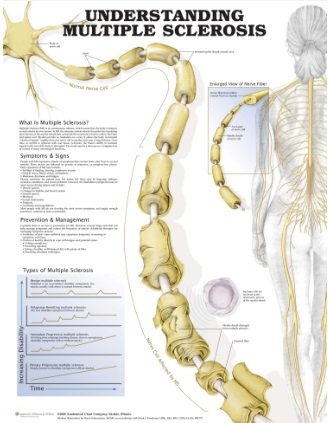Interdisciplinary Treatment
Why is this study important to me?
Most people with MS report some level of pain, including headache, optic neuritis (that is, pain in moving the eye), and neuropathy (pain and tingling in hands and feet). With pain comes psychological distress and interference with day-to-day functioning, defined as recreation, family responsibilities, self-care, and social activity. That depression often accompanies pain should come as no surprise, considering the impact that pain can have on an individual’s daily activities. Whether pain causes depression remains unclear, however, because each appears to enhance the impact of the other on individuals’ lives.
Many patients with chronic pain conditions that are not associated with MS (arthritis or lower back pain, for example) have turned to interdisciplinary pain rehabilitation programs to reduce their pain and improve mood and daily functioning. Such programs combine physical and occupational therapy, individual and group psychotherapy, relaxation and biofeedback techniques, as well as medication therapy, with an emphasis on weaning individuals off of opioids and benzodiazepines. Healthcare providers have not always directed people with MS to these pain rehabilitation programs, because they want to focus their efforts instead on helping individuals to manage their disease.
This study looked at 20 individuals with MS who entered the Cleveland Clinic’s 3- to 4-week Chronic Pain Rehabilitation Program (CPRP). The investigators wanted to determine if the CPRP helped people with MS to reduce pain and depression and improve their daily functioning.
Who took part in the study?
Twelve of the twenty individuals had relapsing-remitting MS, and four each had primary progressive and secondary progressive MS. Seventeen (85%) were white, and sixteen were women. Their mean age at diagnosis was 35, and their current mean age was 49. Of the original 20 who entered the CPRP program, 3 dropped out against the advice of their healthcare provider. Because the study group was small, one cannot necessarily apply the outcomes of this group to all people with MS. Their experience is worth reviewing, however.
What did the study show?
The small study showed clearly that people with MS can show great improvements through participation in an already existing interdisciplinary program that is not tailored specifically to MS. Both individuals with MS and those participants who did not have MS reported significantly lower pain scores after completing the program. The CPRP also eased depression among these individuals. On entering the CPRP, the 20 people were diagnosed with the following severities of depression: none (5), mild (3), moderate (5), severe (7). After completing the program, all but two patients had depression ratings of none or mild at discharge. This study suggests that interdisciplinary pain management programs can benefit both people with MS as well as those who do not have MS.
Read More

